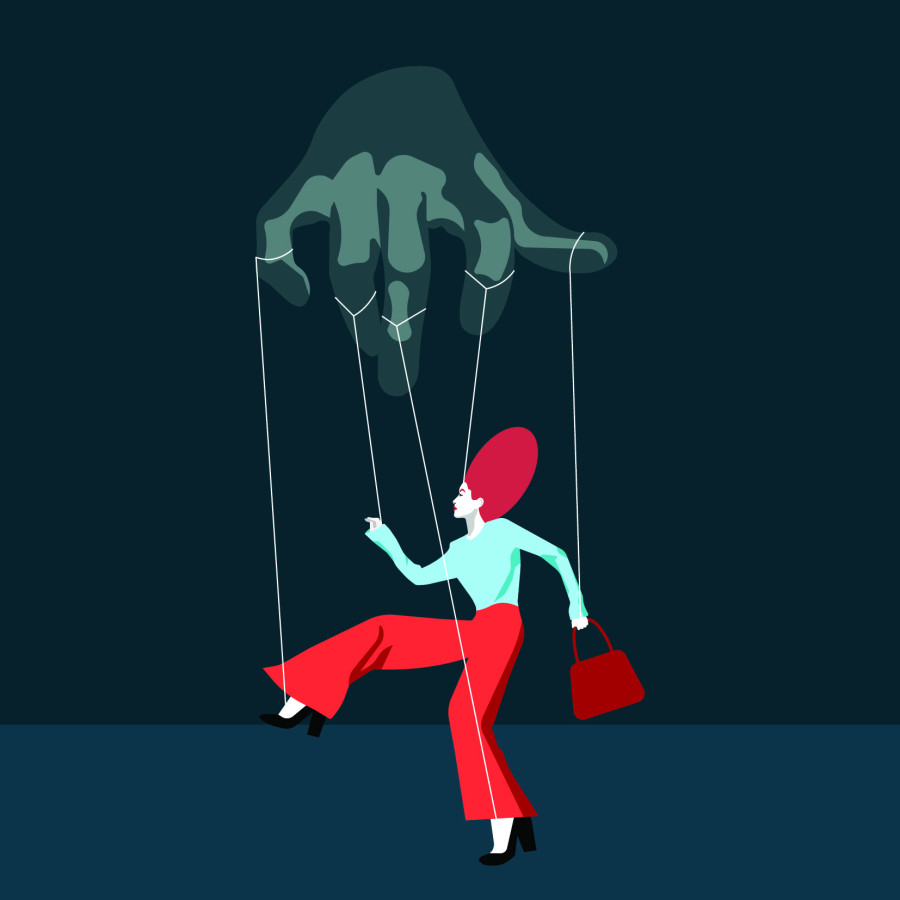As it is
Love should always coincide with respect
From when we are very young, we are steeped in a culture—that is reinforced through mass media—that treats women as beings existing primarily for the convenience of men.
Nisha Rai
“Ek chumma toh banta hai, chumma chumma dede!” (“I deserve a kiss! Give me, give me a kiss!”) I would sing at the top of my lungs.
And not only me. All the children in my neighborhood, boys and girls, would dance along and sing this song.
Although I didn’t think much about its meaning at the time, the song stayed in my head. It is a catchy song, after all.
But when I became a young woman, I reflected more on the meaning of the song, realising its connotations. A boy is demanding a kiss from a woman. It’s not a request. He seems to think that he has every right to this demand, reflecting the privileges and power structures of patriarchy in South Asian culture. From when we are very young, we are steeped in this culture that treats women as beings existing primarily for the convenience of men—not equal beings who need love and respect. This notion is reinforced, in the conversations we have, in the songs that we sing, and in movies we watch.
I recently watched Thappad, a Bollywood movie by Anubhav Sinha. Thappad is the story of Amrita, a housewife who stays at home and leads a simple, mundane life. Each morning, Ammu, as she is called, wakes up to the sound of her alarm clock and collects the milk bottles from her compound, cuts bits of lemongrass from the kitchen window, grates ginger into a cup and makes her herself a cup of tea. She then wakes her husband up, makes sure he eats his breakfast, escorts him to his car with his lunch, his laptop, his wallet. And then she takes care of her mother-in-law and other house chores.
Ammu leads a humdrum, everyday existence—not for herself but for her family. But one day, in the middle of a house party, she gets slapped by her husband—who is agitated because of a work complication. The incident jolts Ammu, making her question her worth in her husband’s life and her own eyes. Eventually she decides to file for divorce.
The premise of the film is just that. But it is powerful because it reflects the reality of millions of women, who have been taught to ‘let things slide’ to maintain peace in the family, to make ‘sacrifices’ for being a woman. By definition, patriarchy keeps women vulnerable in society. Let me take you to Siraha.
The sky was overcast and gloomy, says Sarbati. The birds’ chirping was not pleasing to her ears, and the mango tree in her courtyard looked dark and ugly. It was her wedding day.
She didn’t want to marry this guy she had never met. But was forced to because her father threatened to kill himself if she did not accept the marriage proposal.
As is customary, after marriage, Sarbati went to live at her husband’s house. Late one night, when she was waiting for her husband to come home, her father-in-law turned up in the wee hours reeking of alcohol. He came up to her and began squeezing her breast, she says. Then he tried to forcibly kiss her. She shoved him out of the room and locked the door.
The next morning, when her husband did not return home in the night, she learned that her husband was a drug addict who did not come home regularly. In the absence of her husband, her father-in-law continued to harass her. Her mother-in-law knew what was happening, but instead of putting a stop to it, she would blame Sarbati for not taking care of her drug-addicted son.
It had only been a week at her in-laws' when one night her father-in-law appeared in her room, naked, and forced her to sleep with him. Her husband was asleep in their bed. Aghast at the audacity of the man, Sarbati threw a glass of water at his face and left.
But back at her home, her parents insisted that she return to her husband’s house because of fear of what people would say. Sarbati protested saying that if they forced her to return to her in-laws house, she would kill herself. Her parents relented, and since then, she has been staying at her parents' house.
I met Sarbati seven months ago in her village in Siraha. Her story distressed me deeply, and I was devastated hearing how an eighteen-year-old girl had endured such pain.
Lots of Nepali women haven’t realised that we are not required to do what men tell us or what patriarchy says we must. But the culture we live in has taught us that we must ‘endure’, and much of this is a result of the mass media we consume.
I have watched a lot of Hindi movies. And many of the mainstream films push all these patriarchal notions. For instance, how can we forget Karan Johar’s Kabhi Khusi Kabhi Gham, where the entire film revolves around the breaking of a ‘parampara’ (tradition), where the elder son of the family marries a woman who is of a lesser economic background.
Remember Kuch Kuch Hota Hai? Who can forget it’s famous line: “Hum ek baar jite hai, ek baar marte hai, ek baar pyar hota hai aur shaadi bhi ek baar bhi hota hai.” (“We live once, we love once, and marriage also happens once in a lifetime.”) It clearly suggested that once you get married, you are obliged to spend the rest of your life with that person—even if you are unhappy, even if you are mistreated. You can’t marry again.
I am glad Sarbati didn’t take this line to heart and chose to demand the respect she deserves in a marriage.
And then there are the sexist hit songs from Bollywood that are an integral part of any Hindi film’s narrative but are all products of a patriarchal mindset: “Hai tujhe pe right mera, tu he mera delight, tera rasta roku, chaukhne ka nahi,” (I have a right to you, you are my delight, I could have you stopped, don’t be shocked.”)
To which I can only say: What are you? A traffic cop?
While we’re on the issue of problematic representation in mainstream Bollywood films, how can we forget Darr and how it romanticised stalkers and obsessive behaviour? Take for instance these lyrics:“Tu haan kar ya na kar tu hai meri Kiran,” (“Whether you say yes or no, you are mine, Kiran”). This song was one of the greatest hits and is still quite popular, more than 25 years since the song first released.
From where Bollywood once was, it has come a long way, with films like ‘Thappad’ trying to break the status quo of Bollywood cinema. Almost the same way some Nepali women are striking back at patriarchy every day, taking power back to lead dignified lives. This is just the beginning.




 9.6°C Kathmandu
9.6°C Kathmandu










